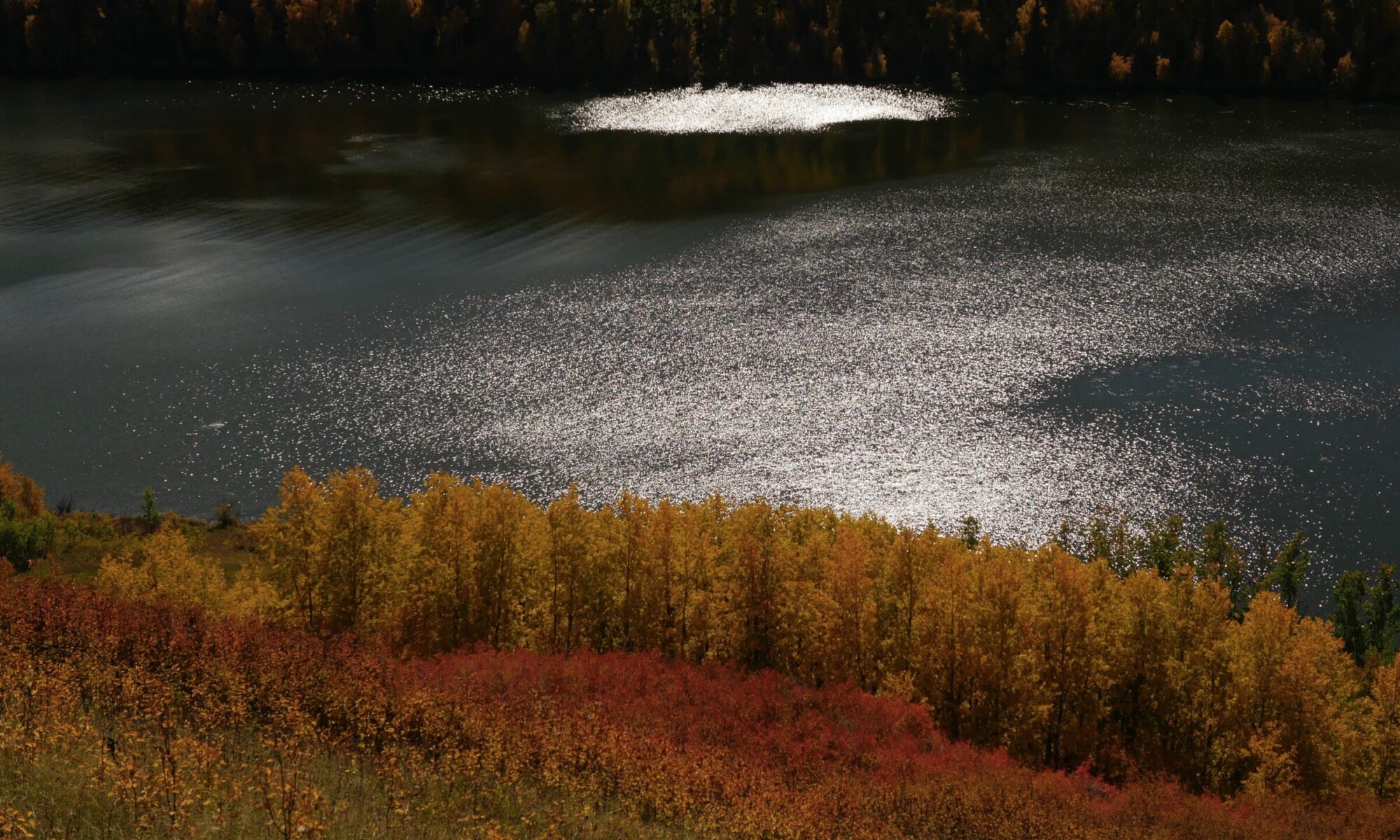The newborn harvest moon hangs low in the pre dawn sky and beckons me outward into creation. The cool autumn air rushes into my lungs as I feel the freedom of being alone in nature. The palatable beams of the moon shimmer hazily through the palette of fall leaves the colours still slightly obscure in the dim light. The silence is broken by the echoes of bird calls through the valley and the rumbling whistle of the train. The world slowly awakens as the stars fade into day. For me this moment changes everything. It reminds me of what is important.The tune of an old hymn floats melodically through my thoughts:
All creatures of our God and King
Lift up your voice and with us sing,
Alleluia! Alleluia!
Thou burning sun with golden beam,
Thou silver moon with softer gleam!
O praise Him! O praise Him!
Alleluia! Alleluia! Alleluia!
Thou rushing wind that art so strong
Ye clouds that sail in Heaven along,
O praise Him! Alleluia!
Thou rising moon, in praise rejoice,
Ye lights of evening, find a voice!
O praise Him! O praise Him!
Alleluia! Alleluia! Alleluia!
Thou flowing water, pure and clear,
Make music for thy Lord to hear,
O praise Him! Alleluia!
Thou fire so masterful and bright,
That givest man both warmth and light.
O praise Him! O praise Him!
Alleluia! Alleluia! Alleluia!
Dear mother earth, who day by day
Unfoldest blessings on our way,
O praise Him! Alleluia!
The flowers and fruits that in thee grow,
Let them His glory also show.
O praise Him! O praise Him!
Alleluia! Alleluia! Alleluia!
And all ye men of tender heart,
Forgiving others, take your part,
O sing ye! Alleluia!
Ye who long pain and sorrow bear,
Praise God and on Him cast your care!
O praise Him! O praise Him!
Alleluia! Alleluia! Alleluia!
Let all things their Creator bless,
And worship Him in humbleness,
O praise Him! Alleluia!
Praise, praise the Father, praise the Son,
And praise the Spirit, Three in One!
O praise Him! O praise Him!
Alleluia! Alleluia! Alleluia!
It changes everything when we learn to view nature as a creation like ourselves that was made to bring praise to God.
The following statements from the book Making Peace with the Land help draw together the importance of seeing the land in this created way, “…reconciliation is about bringing all bodies into a peaceful, life-promoting and convivial relationship with one another…The reconciliation of only human souls with each other, however commendable and beautiful, would be an impoverished reconciliation if such souls were confined to bodies that must eat, drink and breathe their way through a poisoned and degraded creation” (Bahnson and Wirzba 24). What if these environmental problems of poisoned and degraded land that we see today are a result of our failure to be aware of God`s presence in the land? Therefore reconciliation with the land involves seeing God’s presence in it and allowing ourselves to be changed by being close to the land (Bahnson and Wirzba 55). This closeness to the land was very evident in Naomi Klein’s film “This Changes Everything.” We saw people who were forced to eat, drink and breathe in a smoggy, polluted and exploited creation; people who stood together in solidarity asking to be able to be reconciled to their lands.
I appreciated that this film explored both the global and local impacts of the resource extraction industry. It made the issues both personal and close to home and widespread, unjustly affecting the entire globe. Telling the story of the Beaver Creek First Nation people here in Alberta made the film very relevant to the audience. I appreciated the approach of the film to tell stories and to unfold how we have been telling ourselves the wrong story for years. The film poignantly but unaggressively explains that the current story needs to change. They acknowledge that such a change will not happen overnight but that it will be a transition to renewable energy and environmental stewardship. The new story will be different, but will offer many opportunities for people to use the same skills that they use to further develop the current story to write the new one.
The most powerful moment in the film for me was when there was the oil spill on the farm of the couple from Montana. The woman’s connection and love of this land that she had lived on her entire life was so evident and it was heartbreaking to see the instant devastation of their land which they had worked so hard to care for. This love for their land that this couple have and the people of Beaver Creek First Nation have is what changes everything; it changes the story that they are a part of. Being connected to a place is what motivates me to enter the new story. Being connected to a place and recognizing the risks that the current story poses to that place is what changes everything for me.
